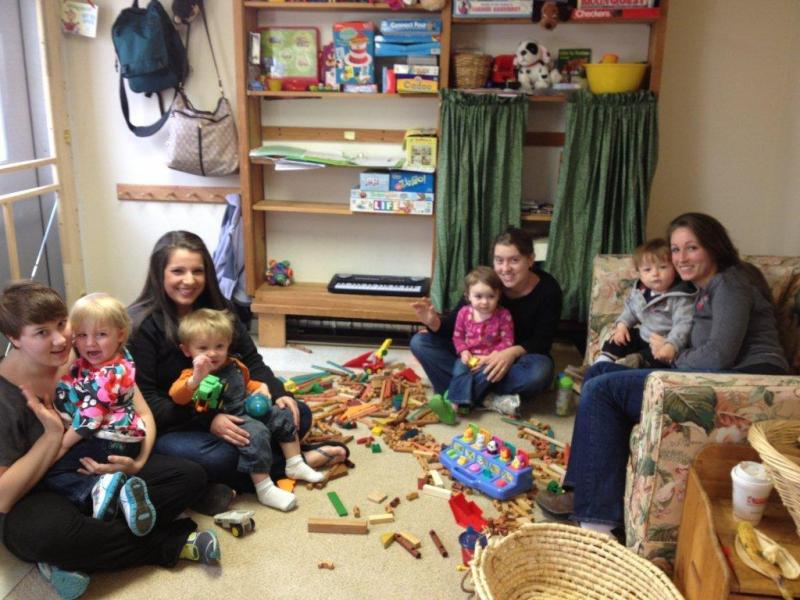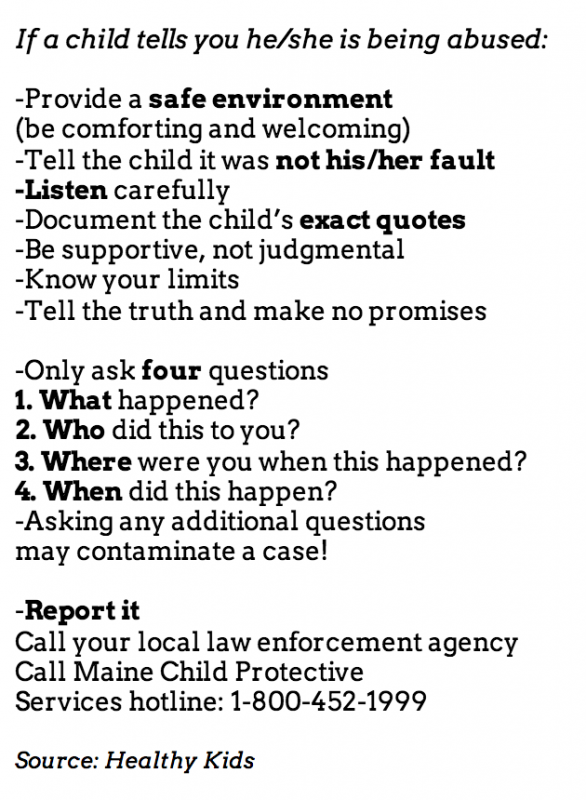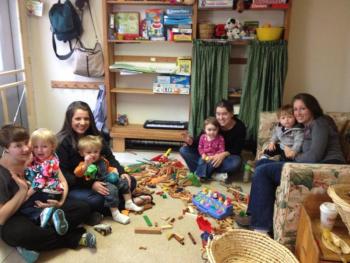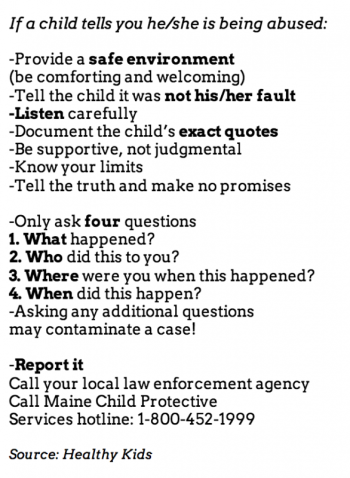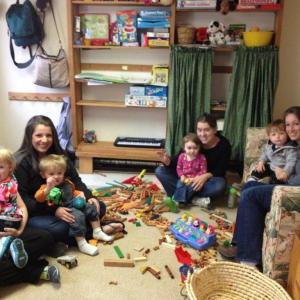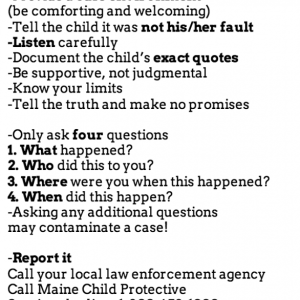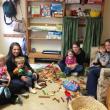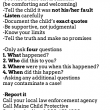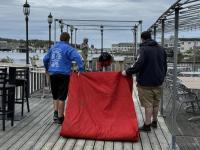Protecting childhood
It is hard for most of us to conceive anyone would harm a child, but every 10 seconds a case of suspected child abuse is reported in the United States.
In 2012, there were 29,747 reported cases of child abuse in the four counties served by Healthy Kids, according to the Maine Department of Health and Human Services. Of those, 293 cases were substantiated and 10 involved children in the Boothbay region.
Health Kids is located in Damariscotta and serves Lincoln, Knox, Waldo and Sagadahoc counties. It aids prevention through education by offering programs for children, teens and adults.
Healthy Kids' mission is to educate adults and parents about child development and provide them support as they take on the most challenging experience they will have: raising a child.
“Having objective, evidence-based, scientifically shown information out there (on brain development, temperament) to draw from is helpful,” Healthy Kids Executive Director Leslie Livingston said. “We research, evaluate and make choices about the cars we buy, the food we eat. We don't come in and say 'this is how you do it,' we come in and provide the most accurate, up to date information we can to help people make good choices about how they care for kids.”
Programming
Healthy Kids offers parenting classes at Head Start, schools, jails, daycare centers and YMCAs.
A new father's support group will be starting in Boothbay and at Two Bridges Jail soon.
Held from 10 a.m. to noon, playgroups for moms and children up to age 5, are held in Damariscotta at Healthy Kids at 127 Elm Street, and in Boothbay Harbor at the Congregational Church of Boothbay Harbor.
Livingston calls playgroups a “perfect prevention program.” Children meet others of different ages and moms meet other moms coping with the same challenges and parenting situations. HK staff are on hand to answer questions and provide information and information sources. Attending playgroups and having HK staff make house calls, helps mothers feel less isolated, stressed or depressed – perceptions and feelings commonly felt by the mothers of young children.
Some young mothers attending the playgroup at Healthy Kids seem to be getting exactly what Livingston described.
Chelsea and 22-month-old son Zachary get out of the house for awhile. “It's a place I can meet other moms,” Chelsea said. Kashia, mother of Oren, said, “every week was different.”
Jessica, mother of 2-year-old Alivia, enjoys making a connection with other young families; and Sandra, mother of 2-year-old Elizabeth, likes the mixed ages of the kids.
Teens
“Baby Think It Over,” is the Healthy Kids curriculum for teens presented in health classes in all Lincoln County high schools. It covers parenting and general care of babies, demonstrated through the use of a simulator baby who cries randomly until a need is met.
A new simulator baby just arrived, which will show students in real time what happens in a baby's brain if it is shaken. Lights go off in the doll's head showing where the brain is bleeding. When the baby stops crying, it does so because it would be unconscious. See a video demonstration at www.boothbayregister.com.
Healthy Kids will be be using two other simulator babies soon. One will have the look of a child born to an alcoholic mother (fetal alcohol syndrome) and the other will be one born drug-affected.
The many forms of child abuse
Genetics are not the only indicators of what we will become. The relationships we have as we develop, beginning with our parents, take center stage throughout childhood and our lifetime.
All forms of abuse are detrimental to a child. When we think of abused children, physical and sexual abuse come to mind first. Other forms of abuse such as neglect (whether emotional, physical, or educational) also cause major repercussions for children.
Livingston said emotional neglect is believed to be the most damaging.
In these cases, a child may be left alone a lot. Even though they may have things (toys, books), and be fed, clothed and sheltered, a relationship with their parents is consistently lacking in their lives.
Eighty-five percent of brain development occurs in the first five years of life. Adverse experiences of any kind, Livingston said, including bullying, have a lasting affect.
“Those experiences get into our bodies, psyche and emotions and impact how we function into adulthood,” Livingston said. “That impact becomes toxic stress, stress that never goes away, unlike the stress you experience when your tire blows out or you have a deadline. A child (who) is constantly shamed or abused suffers toxic stress.”
Livingston shared this example of how and what a baby learns about stress relief and relationships: the baby who cries and the parent comes and feeds, changes or comforts them every time they cry is one whose need is met and stress relieved. This child can go on to observe its surroundings and take in their home environment. This child learns to trust.
A child who cries and cries and no one comes to relieve their stress, remains in a “flight or fight” survival mode and learns not to trust.
The effects of abuse can be seen in brain scans. Livingston described an early brain scan study published in a periodical in the 1990s, where there were photos of two brains: one of an abused child and the other of a child who had not been abused in any way.
“The brain of the abused child resembled the brain of an Alzheimer's patient,” she said.
It's about the safety of the child
HK is a member of the Maine Association of Child Abuse and Neglect Councils and a United Way agency that teaches professionals identified as mandated reporters. Recently the training required for mandated reporters was updated jointly between HK and the Department of Health and Human Services.
Mandated reporters, those who have to report any abuse suspected are all physicians, nurses, teachers, daycare workers (anyone directly involved with children) must report suspicions of child abuse to Maine Child Protective Services (CPS).
“Many people think all they (CPS) want to do is take kids from families and that's not true,” Livingston said. “They don't want more kids in foster care. CPS will do whatever it can to help a family get healthy, if its possible, long before they take a child out of a situation.”
Healthy Kids operates on a lean budget, only two percent of which is state funded. It is run by Livingston, who holds a master's degree in family studies, and Lucy Smith, a program specialist assistant. Smith is a para-professional with extensive training in the field. They are assisted by social workers and about 100 volunteers who do everything from fundraising and book-keeping.
Before working for Healthy Kids, all volunteers must pass a background check. Those who will serve as staff for the playgroups, for example, receive training from Livingston. Volunteers must understand and observe confidentiality, and be non-judgmental of race, socio-economic and education backgrounds of clients.
“Parenting is difficult for everyone. We like to talk about childrearing in terms of the responsibilities and joys; we all need help to do it well,” Livingston said.
For more information about this group or other support visit www.healthykidsmaine.com or call 207-563-1818.
Event Date
Address
United States

